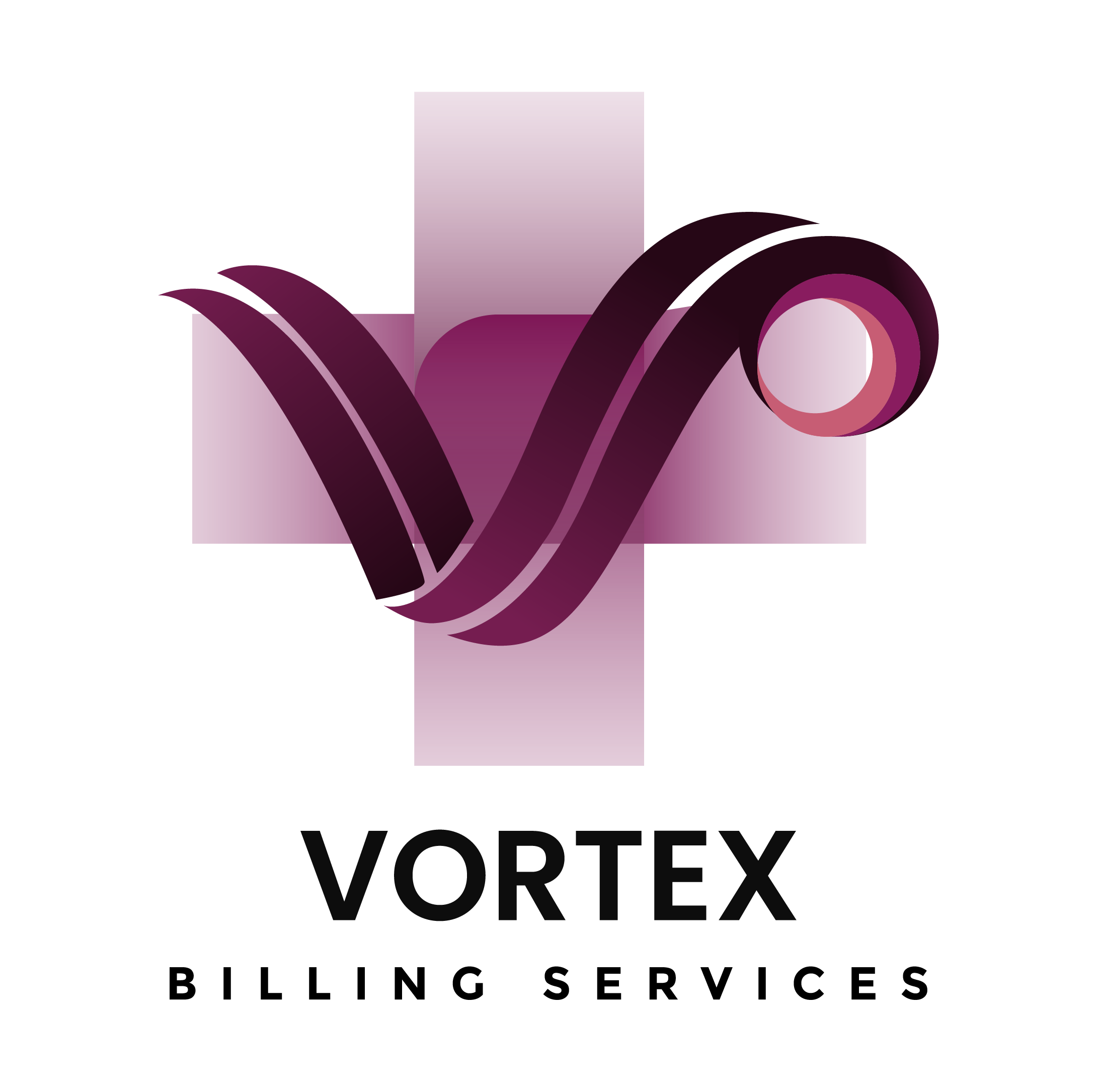Why Outsource RCM is a Game-Changer for Medical Practices
In today’s complex healthcare ecosystem, the question of how to increase medical practice revenue isn’t just about seeing more patients—it’s about managing revenue smarter. So, how can outsourcing revenue cycle management (RCM) increase your practice’s revenue? The short answer: by allowing you to focus on patient care while a team of experts handles your billing, collections, coding, and compliance using advanced technologies and proven strategies. If you’re looking to outsource RCM services in the USA, this move could transform your cash flow and overall efficiency.
Outsource RCM is no longer just a cost-cutting option; it’s a strategic business decision. With growing demands on healthcare providers, from navigating complex insurance rules to managing ever-changing billing codes, outsourcing ensures your billing processes are fast, compliant, and accurate—leading to faster reimbursements and fewer errors. Let’s dive into how this strategy can skyrocket your revenue potential.
Understanding the Basics of Revenue Cycle Management (RCM)
What Is Revenue Cycle Management?
Revenue Cycle Management, or RCM, refers to the end-to-end financial process that healthcare providers use to track patient care episodes from registration and appointment scheduling to the final payment of a balance. It’s a complex operation that includes:
- Patient insurance verification
- Charge capture and coding
- Claim submission
- Payment posting
- Denial management
- Patient collections
Think of RCM as the financial backbone of a medical practice. If it runs smoothly, money flows into your practice without delay. If there are snags—coding errors, rejected claims, slow follow-ups—you’re looking at cash flow bottlenecks that can severely impact your growth.
The Role of RCM in Healthcare Profitability
Healthcare isn’t just about healing people—it’s also a business. And the financial side of this business relies heavily on how well your RCM functions. Whether you’re running a small private clinic or a large multi-specialty group, your revenue hinges on the success of your billing process.
Here’s where most practices stumble: they focus too much on delivering excellent care (which is essential) but neglect the billing cycle. This leads to lost revenue from underbilling, delayed payments, and rejected claims. Proper RCM can boost your revenue by:
- Reducing billing errors
- Accelerating claims processing
- Improving collection rates
- Providing financial analytics and forecasting
That’s why practices that outsource RCM often see improved revenue performance—they’re putting the billing into the hands of experts who do this every day.
Why Medical Practices in the USA Should Outsource RCM
Challenges in In-House RCM Operations
In-house billing teams often struggle with outdated software, limited staffing, and a lack of specialized training. It’s not their fault—the healthcare landscape changes fast, and staying on top of coding rules, payer policies, and regulatory compliance is a full-time job.
Common issues faced by internal RCM teams include:
- High employee turnover
- Inconsistent claim follow-ups
- Poor denial management
- Lack of scalability
- Limited technology integration
And let’s be honest—most clinics don’t have the resources to train billing staff on the latest ICD-10 updates or payer rule changes. These oversights cost you money every single day.
Advantages of Partnering with RCM Experts
When you outsource RCM, you’re not just delegating tasks—you’re gaining a full-service revenue management partner. These companies are built to adapt fast, integrate with your EHR system, and deliver measurable financial results.
Here’s what you gain:
- Access to certified medical coders and billers who live and breathe compliance.
- Automated claim scrubbing and denial prevention tools that ensure clean submissions.
- Scalable support, meaning they grow as your patient volume grows.
- Comprehensive reporting and KPIs, so you always know where your money is.
RCM outsourcing companies operate under performance-based contracts, which means they don’t get paid unless you do. That alignment of interest can be the game-changer your clinic needs.
Key Benefits When You Outsource RCM
Increased Revenue and Faster Collections
This is the biggest win. Most practices that outsource RCM report a revenue increase of 10% to 25% in the first year alone. How?
- Clean claim rates go up (fewer rejections).
- Payment timelines shrink from 45-60 days to 15-25 days.
- Follow-ups on unpaid claims become consistent and aggressive.
Let’s say your current denial rate is 12%. With an expert RCM partner, that can drop below 4%. Multiply that by your monthly billing volume, and you’re looking at thousands of dollars recovered monthly—revenue you’re currently leaving on the table.
Reduction in Administrative Overhead
When you outsource RCM, you’re cutting down the cost of:
- Hiring and training billing staff
- Investing in expensive billing software
- Managing compliance updates
These costs don’t just vanish—they’re absorbed by the RCM provider, who offers it at a fraction of the price because of economies of scale. It’s the difference between running a billing department and plugging into a ready-made, highly optimized engine.
Access to Advanced Billing Technologies
Modern RCM companies offer AI-driven tools that small to mid-sized practices can’t afford to build in-house. These include:
- Real-time eligibility checks
- Predictive denial management
- Automated billing workflows
- Advanced analytics and dashboards
All of this helps you not only bill faster but smarter. You’ll start to notice patterns, optimize service pricing, and even identify underperforming insurance contracts.
Improved Accuracy and Fewer Claim Denials
Coding errors are one of the biggest causes of claim denials. When you outsource, your codes are reviewed by certified professionals before submission. Plus, most RCM companies offer real-time error detection tools that catch issues before they hit the payer.
The result? Fewer rejections. More payments. Better cash flow.
Outsource RCM to Enhance Patient Satisfaction
How Billing Efficiency Affects the Patient Experience
Nobody likes surprise bills or confusing statements. Patients are more satisfied when their billing process is:
- Transparent
- Fast
- Easy to understand
When your RCM is handled professionally, patients receive clear, timely invoices and have access to online payment options, reducing frustration and improving your practice’s reputation.
Simplifying the Payment Process for Patients
Outsourced RCM services typically include:
- Patient portals
- SMS and email reminders
- 24/7 billing support lines
This improves patient trust and loyalty. Happy patients are more likely to return and refer others, indirectly boosting revenue.
Compliance and Risk Management Through Outsourced RCM
Staying Updated with Federal and State Regulations
One of the most underrated benefits when you outsource RCM is enhanced compliance. The healthcare industry in the USA is governed by a complex and constantly evolving set of rules—think HIPAA, CMS, Medicare/Medicaid updates, and state-specific billing laws. Most small to mid-sized practices struggle to keep up.
Outsourced RCM providers, on the other hand, are dedicated to staying compliant. They have compliance officers, legal consultants, and technology-driven alert systems that keep their processes up to date. This means your practice doesn’t have to worry about surprise audits, fines, or claim rejections due to outdated procedures.
In fact, outsourcing reduces the risk of:
- HIPAA violations
- Improper coding fines
- Data breaches
- Payer contract disputes
Staying compliant is no longer a bonus—it’s a requirement. And RCM partners have built their businesses around ensuring you’re not caught off guard.
Data Security and HIPAA Compliance in Outsourced RCM
Patient data is sensitive, and the penalties for mishandling it are severe. When you outsource RCM, you must ensure the vendor provides:
- End-to-end encryption
- Secure cloud-based billing platforms
- Two-factor authentication
- Regular compliance audits
Most top-tier RCM outsourcing companies in the USA invest heavily in cybersecurity infrastructure. Their systems are more secure than most in-house setups simply because this is their core business. They often maintain certifications such as SOC 2, ISO 27001, and of course, full HIPAA compliance.
The result? You get peace of mind knowing your patient data—and your practice’s reputation—is protected 24/7.
Cost Comparison: In-House RCM vs. Outsourced RCM
Hidden Costs of In-House Billing Teams
On the surface, managing RCM in-house seems cheaper. You already have an admin team, right? But dig deeper, and you’ll find hidden costs stacking up quickly:
- Salaries and benefits for billing and coding staff
- Training costs to keep up with CPT/ICD updates
- Software licenses and IT maintenance
- Turnover and recruitment costs
- Error-related revenue losses from denied claims
ROI of Choosing to Outsource RCM
Now compare that with outsourcing. Most RCM vendors in the USA charge between 3% to 7% of collections. That’s it. No overhead. No hidden costs. And because their goal is to collect as much as possible, they’re motivated to perform better.
Plus, outsourcing often leads to:
- Improved cash flow
- Higher net collections
- Reduced aging AR (accounts receivable)
- Less stress on internal staff
The return on investment is clear. In many cases, practices save money and grow revenue at the same time—a rare win-win.
Custom RCM Solutions for Different Practice Sizes
Small Clinics and Independent Practices
If you’re running a solo practice or a small clinic, your staff likely wears many hats—reception, billing, scheduling, and more. This multitasking leads to burnout and missed billing opportunities.
When you outsource RCM, even small practices get access to:
- Dedicated account managers
- Specialty-specific billing knowledge
- 24/7 claim tracking dashboards
This levels the playing field. You no longer have to compete against big hospitals with vast billing departments—you’re using the same tools and expertise, scaled to your size and needs.
Some RCM companies even offer no minimum volume requirements, making outsourcing financially viable for even the smallest operations.
Large Healthcare Facilities and Specialty Clinics
Larger practices face different challenges—complex billing scenarios, multiple payer contracts, and high patient volumes. For them, efficiency and scalability are key.
Outsourced RCM providers offer:
- Specialty-specific coding teams (e.g., orthopedics, dermatology, cardiology)
- Custom integration with your EHR/EMR
- Advanced analytics and performance dashboards
These capabilities are hard to replicate in-house without a massive investment. Plus, outsourcing gives large clinics the agility to scale quickly during expansion or mergers.
How to Choose the Right RCM Partner in the USA
Key Questions to Ask Before You Outsource
Not all RCM vendors are created equal. Before signing a contract, ask:
- Do you have experience with my specialty?
- What is your average first-pass resolution rate?
- How do you handle denied claims?
- Can you integrate with our current EHR system?
- What reports and dashboards do you provide?
- Are you HIPAA-compliant and US-based?
- What are your performance metrics and SLAs?
These questions help you weed out cookie-cutter providers and find a partner who truly understands your goals.
Evaluating Reputation, Technology, and Support
A reliable RCM partner should be more than just a billing service—they should be a strategic extension of your team. Evaluate them based on:
- Client reviews and testimonials
- Case studies and success metrics
- Tech stack and automation capabilities
- Customer service response time
- Industry certifications and compliance
Bonus tip: Avoid providers who lock you into long-term contracts without performance guarantees. The best RCM vendors in the USA let their results speak for themselves.
Technology and Tools Used by RCM Outsourcing Companies
AI and Automation in Modern RCM
The best RCM providers leverage AI and machine learning to streamline billing operations. Here’s how:
- Automated charge capture reduces missed billing opportunities.
- AI-powered claim scrubbing identifies errors before submission.
- Predictive analytics help forecast cash flow and identify revenue leaks.
These tools improve speed and accuracy, leading to faster collections and fewer denials. Most in-house teams simply can’t compete with this level of tech sophistication.
Real-Time Dashboards and Reporting
Transparency is crucial when you outsource RCM. Top providers offer real-time dashboards where you can:
- Track daily collections
- Monitor AR aging buckets
- View denial trends
- Evaluate payer performance
These reports help you make better financial decisions without waiting for monthly statements. It’s like having a CFO-level insight into your practice’s revenue health.
Case Studies: Revenue Growth Through Outsourced RCM
Before and After Outsourcing Metrics
The best way to understand the real impact of outsource RCM is to look at actual case studies. Here are a few examples that showcase the dramatic changes clinics and healthcare providers across the USA have experienced:
Case Study 1: Small Family Practice – Ohio
- Before Outsourcing:
- Clean claim rate: 78%
- Average AR Days: 52
- Collection Rate: 86%
- After Outsourcing:
- Clean claim rate: 96%
- Average AR Days: 21
- Collection Rate: 98%
Case Study 2: Multi-Specialty Clinic – Texas
- Before Outsourcing:
- Monthly Revenue: $180,000
- Claim Denial Rate: 15%
- After Outsourcing:
- Monthly Revenue: $235,000
- Claim Denial Rate: 3%
What changed? These practices didn’t alter their patient volumes or service offerings. They simply stopped losing money due to errors, delays, and missed claims. The right RCM partner turned around their financial performance with strategic billing, denial prevention, and aggressive follow-up.
Real-Life Examples of Success
It’s not just about the numbers. Providers report:
- Lower stress levels due to predictable revenue streams
- Increased patient capacity since administrative burdens were reduced
- Scalability for opening new locations or adding services
The bottom line? Outsource RCM doesn’t just increase revenue—it unlocks your ability to grow.
Myths and Misconceptions About Outsourcing RCM
Addressing Common Concerns
There’s a lot of hesitation around outsourcing, mostly based on myths that don’t hold up under scrutiny:
Myth #1: “We’ll lose control over our billing.”
Fact: You gain more control through better insights, dashboards, and transparency. The best RCM vendors keep you looped in daily, weekly, and monthly.
Myth #2: “Outsourcing is only for big practices.”
Fact: Small practices benefit the most. They reduce overhead, avoid compliance mistakes, and free up their team to focus on patients.
Myth #3: “It’s too expensive.”
Fact: In most cases, outsourcing RCM is less expensive than maintaining an in-house team—and delivers better financial results.
The Truth About Outsourcing and Control
When you work with the right RCM partner, you’re still the one making decisions. You determine pricing, manage patient communication, and approve strategies. The only difference is—your partner does the heavy lifting with:
- Daily billing execution
- AR follow-ups
- Reporting and optimization
It’s like hiring a specialist who works exclusively to grow your income while you focus on what matters most—treating patients.
Future Trends in Revenue Cycle Management
The Rise of Tech-Driven Billing Models
The future of RCM is not just about outsourcing—it’s about smart outsourcing. Companies are merging data science with medical billing to create powerful, tech-driven solutions that:
- Predict denial likelihood before claim submission
- Automatically flag compliance risks
- Recommend changes based on payer behavior
This shift is especially critical for technology-driven practices looking to future-proof their operations.
Cloud-based RCM systems with machine learning algorithms are becoming the new standard. These systems offer:
- Seamless integration with EHRs
- Data syncing in real-time
- Multi-location scalability
As a provider, choosing an RCM partner that’s future-ready means you’re setting yourself up for long-term growth.
Predictive Analytics and Proactive RCM
Imagine being able to identify which payers are delaying payments, which procedures are being under-reimbursed, or which locations are underperforming—before it becomes a problem.
Predictive analytics tools, now widely used by top RCM companies, offer this capability. These tools help practices:
- Make smarter financial decisions
- Adjust service offerings for profitability
- Optimize contract negotiations
RCM isn’t reactive anymore. It’s proactive, predictive, and personalized.
When Is the Right Time to Outsource RCM?
Signs Your Practice Needs External Help
Sometimes, you’re too close to the problem to see it clearly. Here are some red flags that indicate it’s time to outsource RCM:
- High denial or rejection rates
- Long AR aging (>30 days)
- Overworked or understaffed billing team
- Lack of billing insights or reporting
- Increased patient complaints about billing
If you’re experiencing even two of the above, outsourcing should be on your radar.
Planning a Smooth Transition
Transitioning to an outsourced model doesn’t have to be painful. Here’s how to do it right:
- Audit your current billing process
- Create a list of requirements and goals
- Evaluate multiple RCM providers
- Define roles and responsibilities
- Ensure data migration and EHR integration
- Schedule regular check-ins and reporting cycles
Most RCM vendors offer onboarding services, data migration assistance, and even shadow billing (running both systems side-by-side) to ensure a smooth transition.
The earlier you start planning, the easier it is to adopt a revenue-positive outsourcing model.
Tips for a Successful RCM Outsourcing Experience
Setting Clear Expectations
Success with outsourcing hinges on one thing: communication. From day one, establish clear:
- Performance metrics (e.g., collection rates, denial rates, AR days)
- Responsibilities (what you do vs. what they handle)
- Reporting schedules (weekly, monthly, quarterly)
This avoids confusion and sets both teams up for success. Treat your RCM partner like an extension of your business, not an outside vendor.
Maintaining Transparency and Communication
Set up a monthly review meeting to go over:
- Key financial metrics
- Problem claims or billing bottlenecks
- Strategy adjustments
Also, ask for real-time access to billing dashboards. The best providers will welcome this—it shows accountability and builds trust.
Finally, encourage collaboration between your front desk and the RCM team. Smooth patient intake, accurate data capture, and timely updates all contribute to fewer claim errors and faster payments.
Conclusion: Unlocking Practice Growth with RCM Outsourcing
To sum it all up—outsource RCM isn’t just a trend; it’s a smart financial strategy that boosts your medical practice’s efficiency, compliance, and revenue. Whether you’re a small clinic or a multi-specialty provider in the USA, outsourcing your revenue cycle allows you to:
- Collect more, faster
- Reduce billing errors and denials
- Stay compliant with ever-changing healthcare laws
- Focus on patients instead of paperwork
- Scale effortlessly as you grow
In today’s competitive and regulated healthcare market, outsourcing your RCM isn’t just an option—it’s the key to unlocking sustainable revenue growth.



